Exploring the Limits of Creativity: AI’s Impact on Music Composition and Shaping Emotional Response

The intersection of artificial intelligence and music composition marks a revolutionary turn in the creative process. AI algorithms have progressed to a point where they can not only generate novel musical pieces but also push the boundaries of what is traditionally considered creativity.
This evolution raises questions about the nature of artistry and the role of technology in shaping emotional landscapes through music.
AI’s role in music composition has expanded from mere experimentation to a complex partnership with human musicians. These systems are now capable of learning from vast datasets of music genres, styles, and structures, enabling them to create compositions that resonate with human audiences. This capability to evoke emotional responses through AI-composed music suggests a significant shift in how we understand and value the act of creation.
As AI continues to influence the realm of music, the response of the listener becomes a focal point of study. The emotional impact of music created by AI invites scrutiny into how these compositions compare to those by human artists.
It challenges the perception of what elicits emotional connection and whether the origin of a musical piece—be it human or machine—matters in the formation of that bond.
Evolution of AI in Music
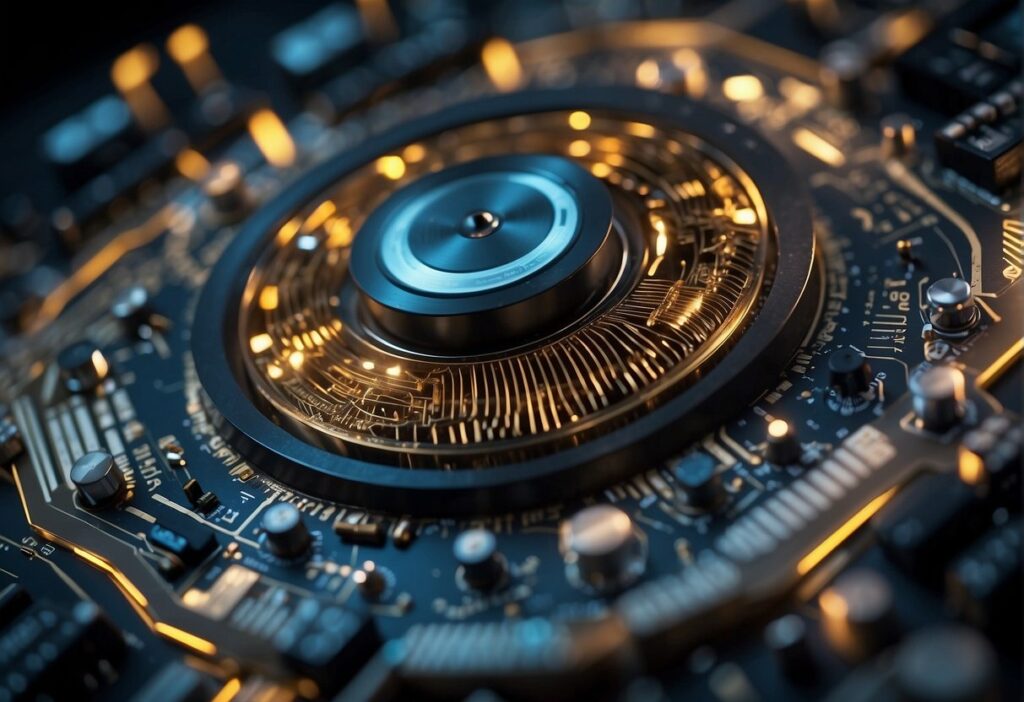
Artificial intelligence has significantly transformed the landscape of music composition, with algorithms now capable of generating complex and emotionally resonant pieces.
Historical Progression
The journey of AI in music dates back to the 1950s, involving the gradual advancement of algorithmic and generative music systems. Initially, these systems were rudimentary, relying on simple rule-based procedures.
However, by the 1990s, the development of machine learning provided new pathways for musical creativity, with models that could learn from vast datasets of music.
- 1950s: The Markov Chain model introduces probability-based compositions.
- 1980s: Hiller and Isaacson’s Illiac Suite, one of the first AI-composed pieces, showcases patterned, algorithmic composition.
- 1990s to 2000s: Emphasis shifts to machine learning and neural networks, expanding AI’s compositional complexity.
Pioneering AI Composers
Several systems and programs have stood out for their contributions to AI in music composition. These pioneering efforts have not only showcased AI’s ability to create music but have also questioned traditional notions of authorship and creativity.
- David Cope’s Experiments in Musical Intelligence (EMI): an early AI system able to compose in the style of classical composers like Bach and Beethoven.
- Google’s Magenta project: employs deep learning to produce original compositions and even assists in the creation of new musical instruments.
- IBM’s Watson Beat: an AI that understands music theory and can collaborate with human musicians to produce new compositions.
Creative Process and AI
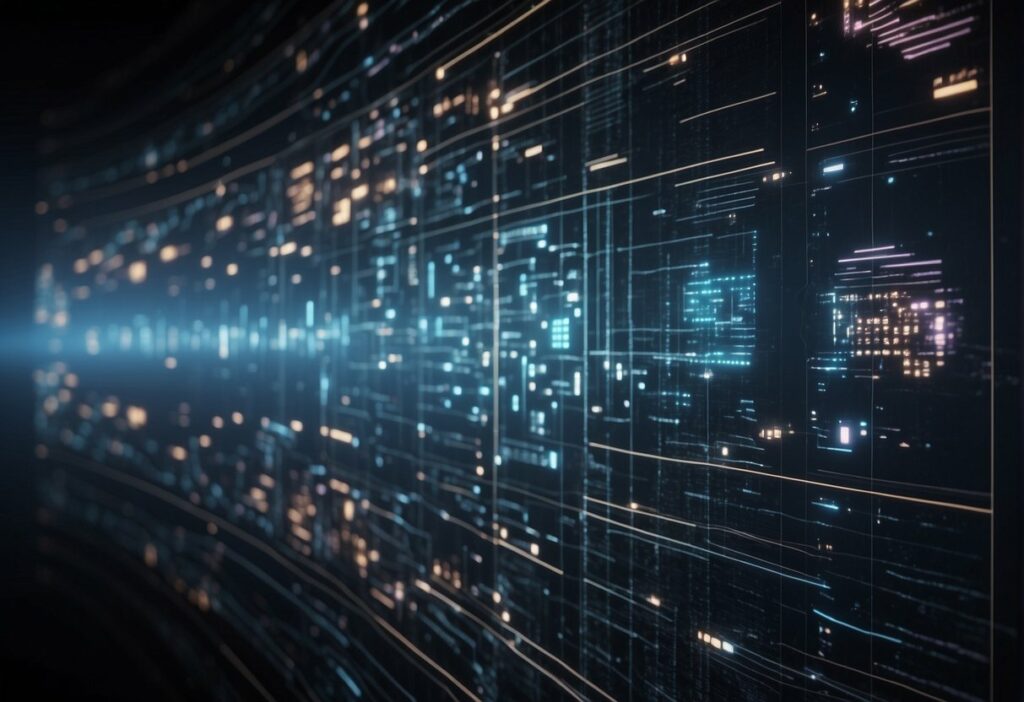
In integrating AI into the music composition process, two main approaches emerge: algorithmic composition techniques that autonomously generate music and human-AI collaboration which leverages AI to augment the capabilities of human composers.
Algorithmic Composition Techniques
Algorithmic composition involves the use of predefined rules and parameters to create music. AI systems, particularly those employing machine learning algorithms, analyze vast datasets of music to identify patterns and generate new compositions. These systems can:
- Generate melody, harmony, and rhythm autonomously.
- Utilize styles and structures from a variety of genres, enhancing diversity in composition.
An example of these techniques includes Markov chains, which predict the likelihood of a particular musical sequence following another, based on the analysis of existing music pieces.
Human-AI Collaboration
In the realm of human-AI collaboration, the composer interacts with the AI system, directing and refining the creative process. The collaboration could involve:
- A human composer selecting and modifying AI-generated musical ideas.
- The AI providing suggestions for melodic development, harmonic progression, or rhythmic patterns.
This synergy is represented by systems like AIVA (Artificial Intelligence Virtual Artist), which can be instructed by composers to create pieces in certain styles, while the human artist focuses on creative expression and emotional depth.
AI-Generated Music and Emotional Impact
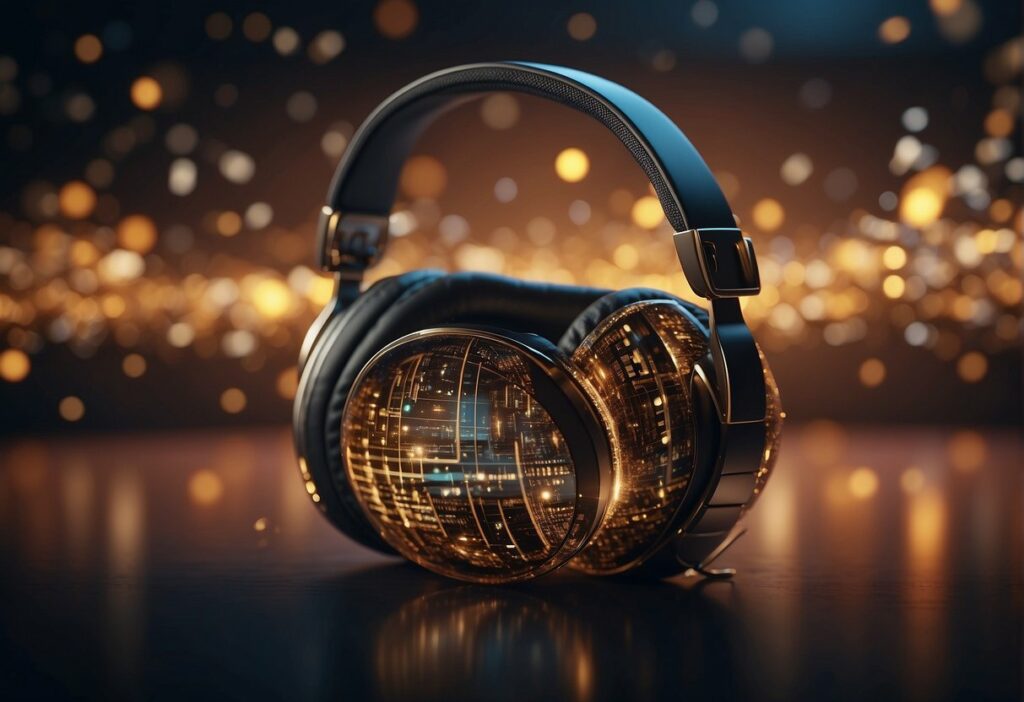
The emotional impact of AI-generated music is notable in listener responses, which exhibit diverse psychological effects, akin to those provoked by human-composed music.
Analyzing Listener Responses
Studies reveal that listeners frequently report strong emotional reactions to AI-generated compositions. In these studies, specific metrics such as pulse rate, facial expressions, and self-reported mood assessments are used to gauge reactions. For instance:
- Heart Rate: Increased rate may indicate excitement or tension.
- Facial Analysis: Smiles or frowns can reflect positive or negative emotions.
- Mood Questionnaires: Directly asking participants about their feelings provides subjective data.
These responses suggest that AI-generated music can elicit emotions effectively, sometimes to the degree that listeners cannot distinguish between AI and human composers.
Psychological Effects of AI Music
The psychological impact of AI music on listeners can vary significantly. Some individuals experience a degree of emotional engagement similar to that with human-created music, including states such as relaxation or motivation. Others might feel unease or lack of connection due to perceived artificiality. Important factors influencing these effects include:
- Composition Complexity: Simple compositions may invoke differing emotions compared to more complex pieces.
- Listeners’ Expectations and Biases: Preconceived notions about AI can shape emotional response.
- Cultural and Personal Context: Individual preferences and cultural backgrounds play crucial roles in how AI music is perceived and processed emotionally.
Challenges and Ethical Considerations
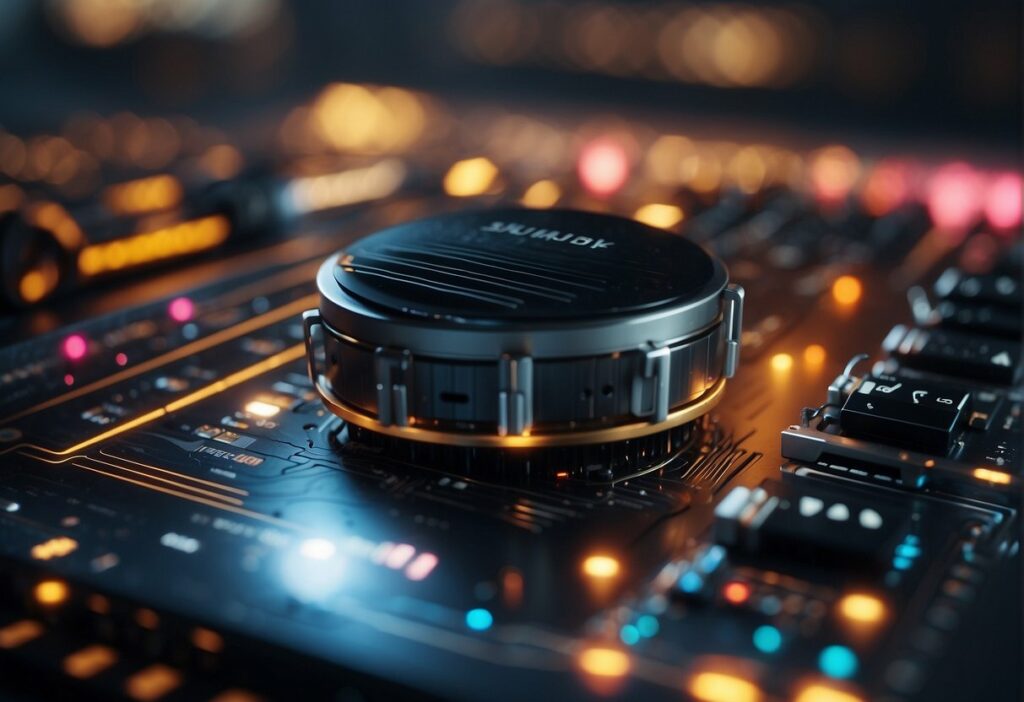
As artificial intelligence integrates into the realm of music composition, it faces challenges and ethical considerations, particularly in the domains of authenticity and intellectual property.
Authenticity and Authorship
Authenticity in music refers to the genuine expression of the artist’s emotions and thoughts. With AI-composed music, distinguishing between the creativity of the artist and the algorithms becomes complex. AI raises questions about authorship, as it is unclear who should be credited: the programmer, the AI, or a collaboration between both.
Intellectual Property Concerns
Intellectual property (IP) laws were established to protect creators’ rights to their work. In AI music composition, these laws encounter unprecedented scenarios. For example:
- If an AI generates music influenced by existing works, who owns the rights to the new composition?
- Patenting AI-generated music could lead to legal battles over the origins of creativity.
There’s an urgent need for clear guidelines that govern AI’s role in music creation and its implications for intellectual property.
Future Horizons in AI-Driven Music
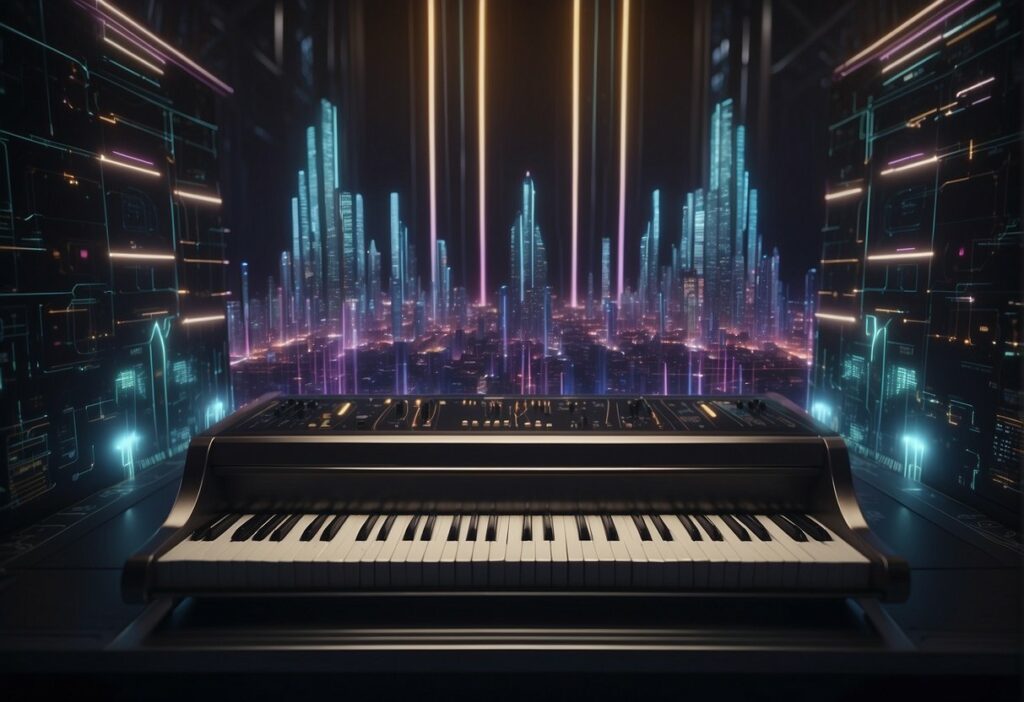
In the arena of AI-driven music, the horizon is expanding with significant strides in emotional resonance and creative capacities.
Advancements in Emotional Understanding
Artificial intelligence is now being equipped with more nuanced emotional intelligence. Future developments include improvements in detecting and interpreting human emotions, which will allow AI to create music that can elicit specific emotional responses. For instance, work on emotion recognition algorithms has seen AI successfully categorize music based on moods such as happiness, sadness, or excitement. This can be itemized as follows:
- Real-time Analysis: AI systems will analyze the listener’s emotional state through biofeedback and adjust the music dynamically.
- Cultural Sensitivity: There will be a focus on understanding the cultural contexts of emotions, making AI composition more globally attuned.
Expanding Creative Boundaries
The integration of AI in music is pushing beyond traditional genres and styles, exploring new sonic landscapes. AI’s capacity to process vast datasets enables it to draw from a diverse array of sounds and techniques, leading to innovative musical expressions. Here are some ways AI is expanding creative boundaries:
- Hybrid Genres: AI synthesizes elements from multiple genres to create novel musical styles.
- Algorithmic Originality: AI uses deep learning to generate unique compositions, sometimes surpassing the creative limitations of humans.
By analyzing historical data and current trends, AI will continue to serve as a complementary tool for artists, augmenting the human experience of music creation and consumption.
